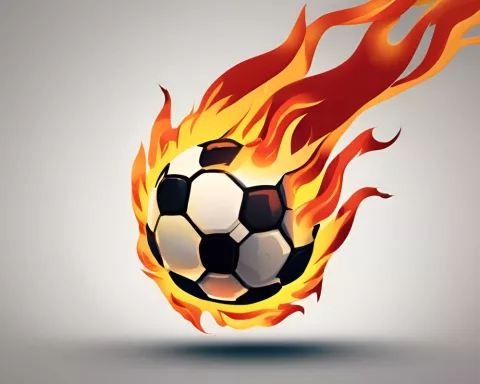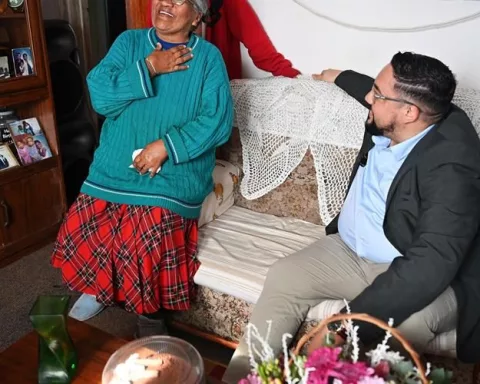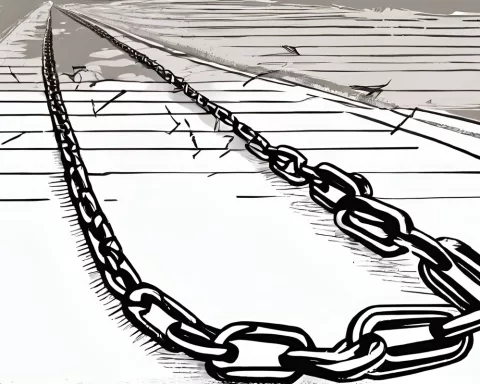Mohamed Salah’s injury during the Africa Cup of Nations caused concern for the Egypt national football team. Initially, it was thought he would miss only two games, but it was later announced that the injury was more severe, with a recovery period of 21-28 days. Salah’s journey to recovery emphasizes the importance of managing players’ health in football and highlights the unpredictability of injuries.
The unexpected injury of key player Mohamed Salah during the Africa Cup of Nations caused worry for the Egypt national football team. Initially, it was hoped that Salah would only miss two games, but a longer rehabilitation period was projected. Salah’s manager, Ramy Abbas Issa, announced that the injury was more critical than initially assessed, with a rehabilitation period of 21-28 days. Salah’s recovery journey highlights the importance of managing players’ health in football.
The Unexpected Blow
In the dynamic arena of football, where boldness and cunning reign supreme, the most unwelcome scenario is the unplanned setback of a key player’s injury. This unforeseen plot twist recently took a toll on the Egypt national football team as their leading player, Mohamed Salah, sustained a hamstring injury during the Africa Cup of Nations. This incident sent a wave of worry throughout the team.
The incident transpired in Ivory Coast amidst Egypt’s heated 2-2 draw with Ghana, a game characterized by the invigorating spirit inherent in African football. In the course of the match, Salah incurred an injury that would later be diagnosed as more serious than it initially seemed. The prognosis was a daunting hamstring injury, with a recovery time that appeared to extend with each subsequent report.
At first, there was a collective sigh of relief when the Egyptian Football Association declared Salah would miss just two games. The hope was for the 31-year-old forward, known for his nimbleness and accurate scoring prowess, to make a comeback for the AFCON semi-finals, provided the Egyptian team advanced. However, an inside source from the team soon projected a longer rehabilitation period, indicating that Salah could be out of action for 10 to 14 days.
Rising Tensions Around Salah’s Recovery
Adding to the mounting suspense, Ramy Abbas Issa, Salah’s manager, cast shadows of uncertainty over this extended recovery timeframe. He announced on a social media platform, X, that Salah’s injury was more critical than initially assessed, and the rehabilitation period was modified to 21-28 days. He recommended that Salah’s most feasible option to play in the ongoing AFCON was to undergo intensive treatment in the UK and rejoin the team as soon as he was combat-ready.
The reverberation of this proclamation was felt without delay in the Cup of Nations arena. Egypt’s pivotal final group match against Cape Verde resulted in a 2-2 draw, securing their spot in the last 16. Despite his injury, Salah was present at the game, a solid affirmation of his unwavering commitment to the team.
The Aftermath and Future Outlook
Post-match, Egypt’s coach Rui Vitoria took the chance to clarify the evolving circumstances. He confirmed the serious extent of Salah’s injury, describing it as more long-term than initially reported. He commended the medical team for their endeavors and asserted it was wise for Salah to return to Liverpool for his recovery, considering the team’s impending relocation to San-Pedro for the last-16 showdown.
Vitoria’s aggravation was evident when he mentioned Jurgen Klopp, Liverpool’s manager. He expressed discontent over Klopp’s premature insinuation that Salah would return to Anfield for therapy before any formal statement from the Egypt team. Vitoria stressed that the optimal solution for the player’s treatment was currently being sought, now that the crucial match had concluded.
In the larger perspective of football, injuries are an unavoidable element, and unforeseen incidents can always transpire. Salah’s recovery journey will test his resilience, but it also highlights the significance of meticulously managing players’ health. As the dust settles on this recent incident, the Egypt national team, its supporters, and the entire football world will eagerly be anticipating Salah’s comeback on the field.
© Agence France-Presse
1. What was Mohamed Salah’s injury during the Africa Cup of Nations?
Salah sustained a hamstring injury during Egypt’s match against Ghana, which was later diagnosed as a more serious injury than initially assessed.
2. What was the initial recovery period projected for Salah’s injury?
Initially, it was hoped that Salah would only miss two games.
3. What was the extended rehabilitation period projected for Salah’s injury?
An inside source from the team projected that Salah could be out of action for 10 to 14 days, but his manager later announced that the rehabilitation period was modified to 21-28 days.
4. Where was Salah recommended to undergo intensive treatment?
Salah’s manager recommended that he undergo intensive treatment in the UK and rejoin the team as soon as he was combat-ready.
5. What was Egypt’s coach Rui Vitoria’s opinion on Salah’s injury and treatment?
Vitoria confirmed the serious extent of Salah’s injury, describing it as more long-term than initially reported. He expressed discontent over Klopp’s premature insinuation that Salah would return to Anfield for therapy before any formal statement from the Egypt team and stressed that the optimal solution for the player’s treatment was currently being sought.
6. What does Salah’s recovery journey emphasize in football?
Salah’s recovery journey highlights the importance of managing players’ health in football and the unpredictability of injuries.












